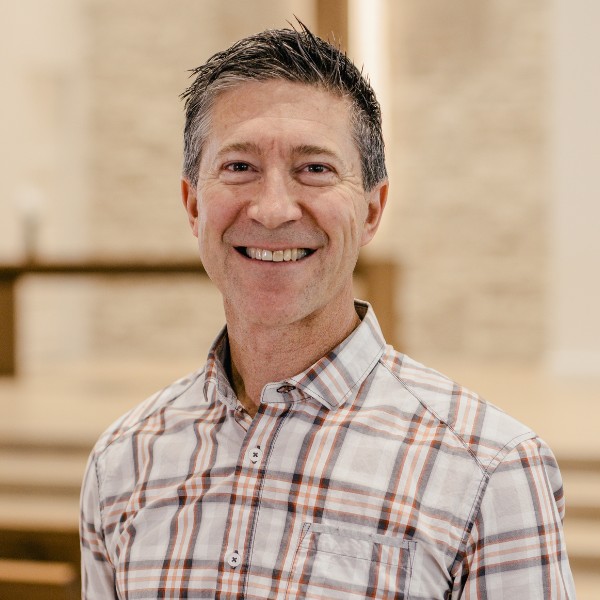We are creatures, not Creators. Sure, we can make interesting and helpful things out of already existing raw materials like phones, beer and air conditioning (we shouldn’t forget where the talent, brains and perseverance come from to make these things). But we are not capital-C Creators. We cannot create material by speaking it like God, nor can we speak riches and healing into our own lives by having enough faith in a genie-like god (like false preachers Joel Osteen, Benny Hinn and Bill Johnson would have you believe). We cannot “be whatever we want to be,” and “accomplish whatever we set our minds to.” We are limited, bounded creatures through and through.
But people don’t like this stubborn fact! For a long time, the West has been walking down the path of open rebellion against our “createdness.” We have decided that we can do whatever we want and remake ourselves in whatever form that suits us.
A cultural and philisophical history of this change in orientation was recently published by Carl Trueman. His excellent book The Rise and Triumph of the Modern Self describes two concepts borrowed from philosopher Charles Taylor – mimesis and poiesis.
“Mimesis (from the Greek word “to mimic” or imitate) regards the world as having a given order and meaning, and thus sees human beings as required to discover that meaning and conform themselves to it.”
“Poiesis (from the Greek word “to make”) sees the world as so much raw material out of which meaning and purpose can be created by the individual.”
Five centuries ago, when crops would either flourish or wither depending completely upon rainfall, when plagues would sweep through towns and kill a third of the population, when newborn babies would die with traumatic, heart-breaking consistency, it was very easy for people to believe that they were humble creatures in a world controlled by an inscrutable yet merciful God who made the rules.
Today food never runs out, planes take us halfway around the world in less than a day, we can control how many kids we have and our homes stay the same temperature no matter how hot or cold it is on the other side of the kitchen window.
It is not difficult to see why we live in an age of poiesis.
But there is a deeper reason why we believe we are self-Creators and not those who exist only because of an all-powerful, loving Creator. Aleksandr Solzhenitsyn put it succinctly about 40 years ago: “Men have forgotten God; that’s why all this has happened.”
The ideas that we have no limits, that our bodies are superfluous obstacles to freedom, that we can be whatever we want to be, that we will not be judged, that our real self is way down there deep inside of us – these are lies that bubble up in a heart that says, “There is no God.”
If people forget God, they end up thinking that they are themselves gods, self-Creators. Psalm 14:1 says, “The fool says in his heart, ‘There is no God.’” This does not mean that the atheist is low on IQ. Rather, his blindness leads to the opposite of wisdom – moral foolishness. The ideas that we have no limits, that our bodies are superfluous obstacles to freedom, that we can be whatever we want to be, that we will not be judged, that our real self is way down there deep inside of us – these are lies that bubble up in a heart that says, “There is no God.”
Doug Wilson colorfully and polemically put it this way:
God created the world in such a way that every creature has extensive limits . . . every creature is finite—it has a beginning and an end, in both space and time. But both these limitations are intolerable to autonomous and rebellious men, and so they set a disastrous series of falsehoods in motion. After their corrosive lies eat out the containers that used to hold them (societal expectations, sexual morality, etc.), the corrosive lies begin to devour the liars themselves. It used to be that society’s expectations were suffocating, and the legacy of Christian morality was maddening. But having overthrown those, I soon discover that this male body I was born with is trying to tell me what to do . . .The cult of expressive individualism maintains that deep down within every person is a real ego, the genuine article, which has the authority to contradict absolutely everything outside . . . And so we maintain, with solemn faces, that when we work our way down to that central ego, peeling off all the superfluous layers, tattooing them as we go, when we get down to that little imp, that central liar, we will have finally found the truth.
Christians know better. We know that “following your heart” is disastrous advice – “The heart is deceitful above all things, and desperately sick; who can understand it?” (Jeremiah 17:9). We know that our identity is not what our proud little ego says deep within, but what the God of the universe, who graciously sets the terms of our existence, tells us. Here are five ways that God affirms our limits and our creatureliness:
His Word – We learn the most important things from the external, objective Word of God — who we are (sinners), who He is (holy), how this massive problem has been overcome (Jesus), and what we must do (repent, believe, obey). The Word is our authority, not our own spiritual/emotional experiences. “God told me” is a dangerous thing to say. How do I know that “God told me in a dream to move to Vegas” or “God spoke as I was eating my shredded wheat and blueberries this morning and said I should start a coffee shop”? It may have been God . . . or it may have been that deceitful traitor Jeremiah mentioned above. Or worse. If we claim “God told me” when the Word of God says the opposite, we are not merely saying a dangerous thing, we are saying a demonic thing. His Word is a border and a gift.
The Word is our authority, not our own spiritual/emotional experiences.
Truth – We cannot change it. It exists quite apart from our opinion about it. We might lie, and attempt to bend reality to our wishes, but in the long run, lies and power exhaust themselves and truth wins the day. That is because truth cannot be changed into a lie. David got away with taking Bathsheba and murdering Uriah. He lied about it and covered it up, and no one knew about it except the One who knows all things, and that made quite a difference. David was free and clear . . . until he wasn’t. And he paid dearly for the rest of his life for his selfishness and sin. Christians play the long game, knowing that in the end all lies will be exposed, and so we aim to tell the truth even when it is really hard to. The truth will not only be known, but it will appear before us as we bow our knee to Him. It is always best to follow the truth in our world instead of a poetic retelling of what actually is. Truth is a border and a gift.
Body – our physical bodies severely limit who we are. My chromosomes really are stubborn, in direct accordance with God’s Word – “male and female He created them” (Genesis 1:27). My age also marches on, approximately a year at a time with astounding consistency. We can work on reducing the external markers of our age, like, I don’t know, trying insanely difficult workouts with NAPC new member Farouk Houssein (who is a HIIT trainer). Perhaps for you it is essential oils that are essential to remaining young, or organic produce that will keep you from ceasing to be organic. But all of those will not alter the limits your body imposes on you. Your body is a border and a gift.
Death – when all that aging gets done with us, we go into the grave. It is the same story for everyone, no matter how important they are. As we learned last summer from David’s son Solomon in Ecclesiastes, there is “a time to be born, and a time to die” (Ecclesiastes 3:2). It is surprising that so many of us are surprised by this. But death comes to us all, which is a border and a gift for we who know what comes after death.
Local church membership – This is a strange way to end this list but let me explain. When we vow to be part of a local church and take seriously those vows before God and our brothers and sisters, we limit ourselves severely. We don’t keep our options open or sample different places or hop or shop. Membership in a local church means that we are limited to that church in exactly the way God tells His people to limit themselves. Why? Similar to marriage, when we say yes to one person and no to everyone else, committing ourselves to a particular church gives us the freedom to develop deep and loving relationships within the church. We can work through conflict and still trust that we care for one another. We can criticize strongly but still love deeply. We can pray and serve together and care for each other through thick and thin. This has been difficult to do this year especially. The unity of NAPC during this time is so important, and many of the things that could divide us do not have to. And if we are willing to remain rooted here, and to endure this time of controversy related to pandemics and race and politics, we will see much fruit. What a gift is the border of remaining together as brothers and sisters for many years, forgiving and seeking forgiveness, and serving our Lord together through joyful and difficult times.
Of course, the people around us in our communities will likely find some or all of these borders unpersuasive and intolerable and burdensome. That is fine. We can keep on sharing His love and grace, and trusting that God will do His work. Ultimately, those who trust in their ability to self-Create, who favor poiesis, will come to disappointment and pain and confusion. When they do, we can listen to them, love them, and point them to the reason why we have such gratitude in our hearts though life is often tragic: because we are creatures and the Creator is holy and powerful and He loves us. We know that He created all things, and we know our best path is to humbly conform to His commands. And we can offer those fellow bounded human beings made in His image the only true hope: the Gospel of Jesus Christ.
Pastor David

